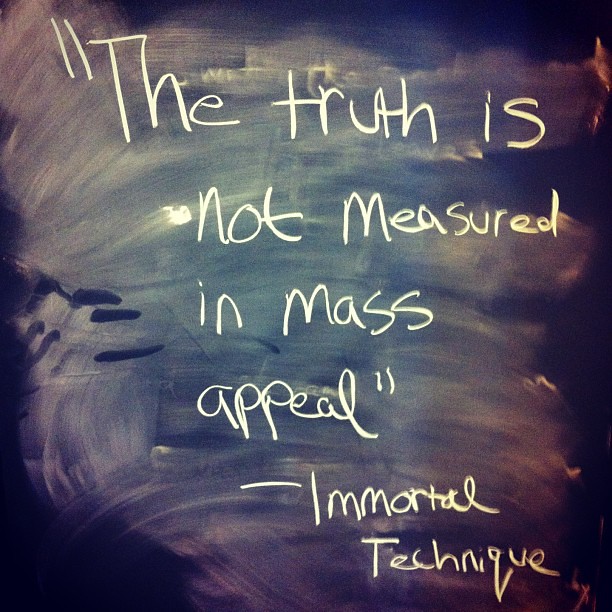Eye Rolls, Corporatization, and Wikipedia
I’m once again teaching my first-year composition course about Wikipedia, and so on the lookout for when the “free encyclopedia that anyone can edit” makes the news. Notable stories in the past couple years include the lamentable scarcity of female editors (and the abuse those few female editors face), manipulation by marketing firms, and grudge-holders seeking revenge. Last week Wikipedia featured, briefly, in the ongoing debate about the corporatization of American universities. The example touches on two lessons I hope my first-year students take away from their composition courses — evaluating sources and the importance of knowing one’s audience — and reveals what I take to be a major disconnect between a corporate ethos and an academic one.
The University of Iowa recently announced that its 21st president will be Bruce Harreld, a former executive at IBM, Kraft, and Boston Market. The choice has been, to put it mildly, unpopular. Inside Higher Ed‘s Kellie Woodhouse notes that fewer than 5% of faculty and students approve Harreld’s appointment, primarily because of his lack of experience in higher education administration, and even Business Insider picked up the story. Cathy Davidson, among others, sees the announcement as further evidence of the corporatization of the public university, a trend has become all to common and was exemplified this summer by Scott Walker’s gutting of the University of Wisconsin system. (As Caroline Levine cogently explains, Walker’s move was political and ideological rather than budgetary).
So how does this connect to Wikipedia? Harreld’s critics point out his performance in a public forum, which began with a presentation that Kembrew McLeod of Slate calls “rambling,” then continued with a Q&A. Here is a video of the forum, queued to the moment that most upset his detractors:
Sara Riley, who identifies herself as an attorney and a second-generation Iowa grad with kids recently graduated and currently enrolled, calls out Harreld for his comment that Iowa should aim to become a “public Ivy”. Riley asserts that Iowa is a public Ivy, and has been since the 1980s, to which Harreld snidely responds, “I’ve seen the website, too.” In answer to Riley’s, “which website?” he replies “Wikipedia.” When Riley says, “I don’t go to Wikipedia, I’m an attorney,” Harreld rolls his eyes, unable to hide his derision. He doubles down on his source a minute later, assuring Riley that he does remember what Wikipedia says about Iowa’s status as a public Ivy. (For the record, Riley cites a better source.)
The exchange, and particularly the eye roll, reveals a lot.  The educational model that colleges and universities promote distinguishes authoritative, trustworthy sources from biased, unrepresentative, or ill-informed ones. (So does Wikipedia, for that matter: and it doesn’t even consider itself reliable). Harreld’s implication that such distinctions are silly, that it doesn’t matter where he gets his information, reveals a fundamental disconnect with the faculty, staff, and students he will lead as president of the university.
The educational model that colleges and universities promote distinguishes authoritative, trustworthy sources from biased, unrepresentative, or ill-informed ones. (So does Wikipedia, for that matter: and it doesn’t even consider itself reliable). Harreld’s implication that such distinctions are silly, that it doesn’t matter where he gets his information, reveals a fundamental disconnect with the faculty, staff, and students he will lead as president of the university.
But that’s not the biggest issue. If I’m being honest, I use Wikipedia just about every day (Riley probably does to). Not for nothing is it the seventh most visited site: it’s an efficient, accessible resource, and it’s mostly right most of the time. There’s even a case to be made that Wikipedia can help us rethink liberal education in the twenty-first century. Rather, the issue is one of audience. I don’t cite Wikipedia in my scholarship, I don’t prep class based on Wikipedia, and I would certainly never bring it up in a job interview as evidence that I’d researched my prospective employer.
At least in the clip, Harreld seems not to understand why academics might object to such a source, and that misunderstanding, to my mind, gets at one of the fundamental disconnects between the corporate ethos and the academic ethos. For speed and efficiency, Wikipedia is just fine. But for accuracy and rigor, a better source is necessary. Stakeholders in an institution whose mission is to “advance scholarly and creative endeavor through leading-edge research and artistic production” have a right to expect more from their leaders.
Thats a great story: I will make sure Signpost picks up your commentary. Also, in your survey of recent conversations, you missed http://arstechnica.co.uk/science/2015/09/wikigate-raises-questions-about-wikipedias-commitment-to-open-access/ and blog.wikimedia.org/2015/09/16/open-access-in-a-closed-world/ . Seems to be some significant conversations about very similar issues: access, academic authority, etc.
Thanks! You’re right that the #wikigate controversy is related here. Today in class, in fact, we’ll be talking about the partnership with Elsevier and the problems with pay-to-read scholarship.